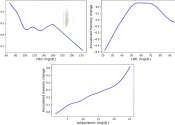Scientists link certain gut bacteria to lower heart disease risk
Changes in the gut microbiome have been implicated in a range of diseases including type 2 diabetes, obesity, and inflammatory bowel disease. Now, a team of researchers at the Broad Institute of MIT and Harvard along with ...
Apr 2, 2024
0
137









